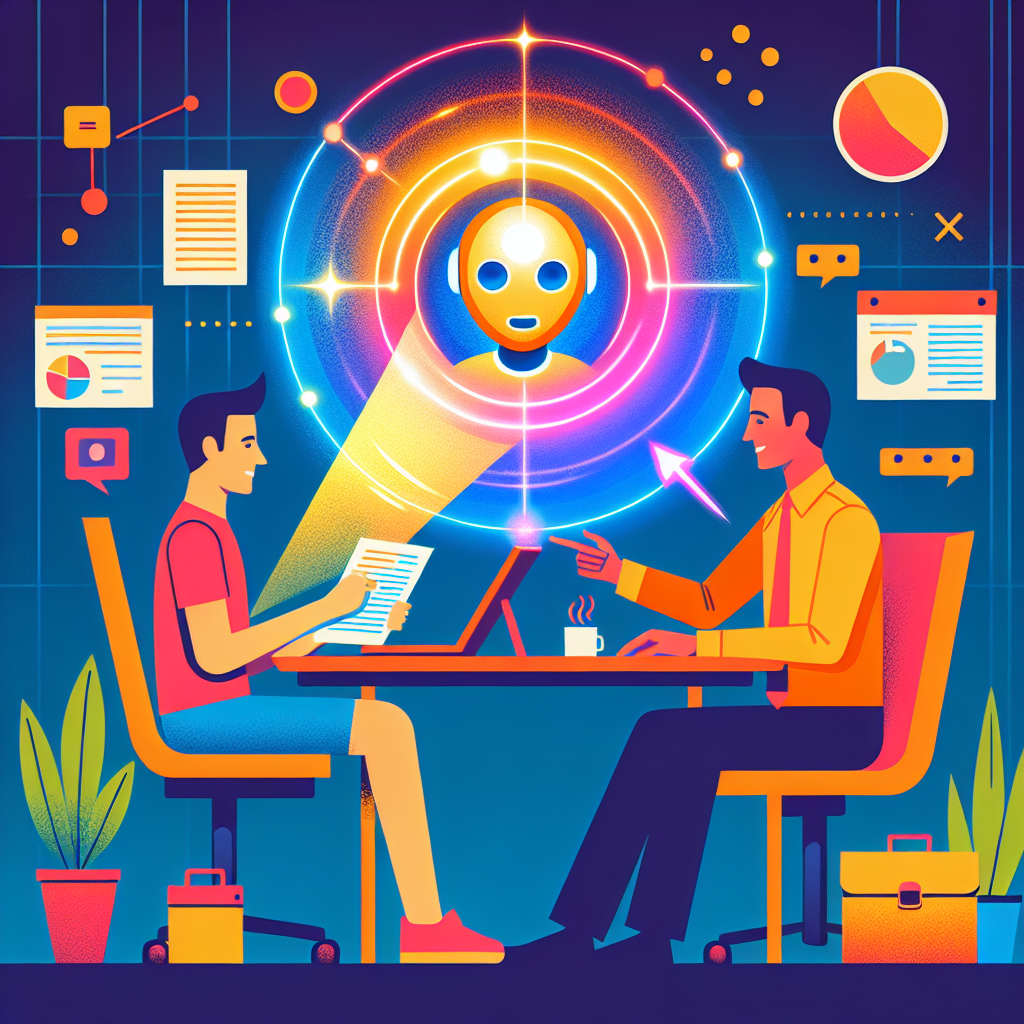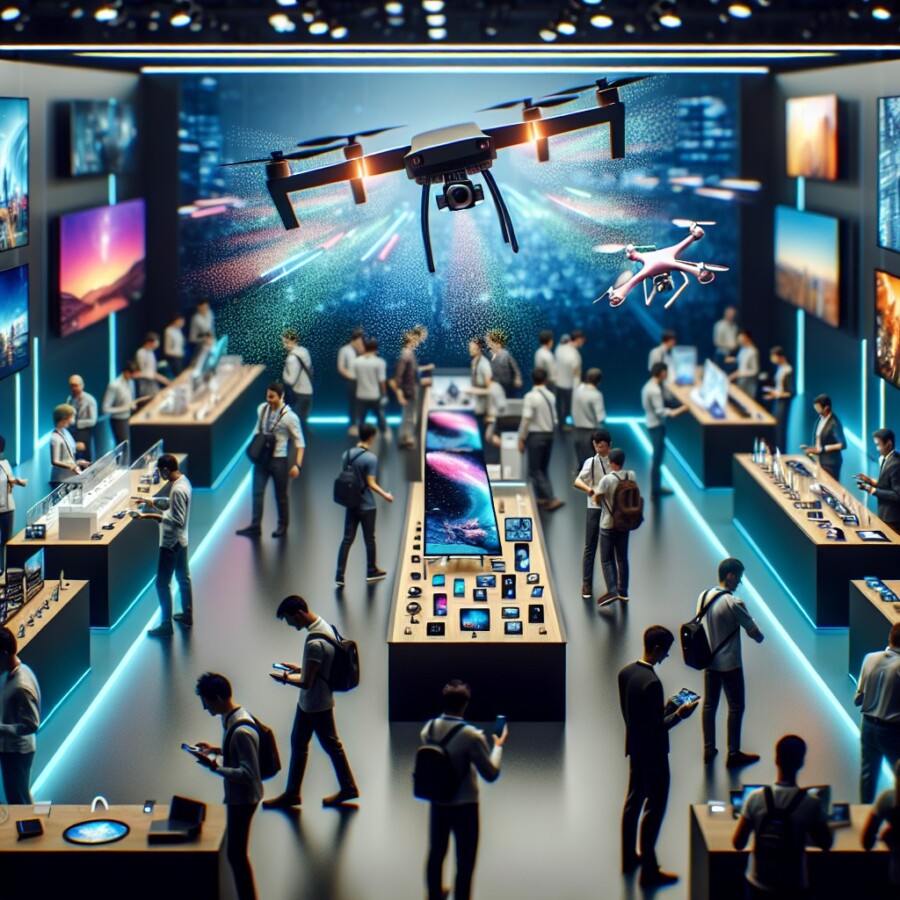Many people don’t like to read instruction manuals. In the UK, one in five people skips them, and in the US, it might be even more. Some people, like Caspar from a company called Aveva, think manuals are important. But in factories, workers need to know how machines work, especially if something breaks. To help, Aveva made a smart computer that can read manuals and help fix problems.
This smart computer is like a helper for engineers. It knows a lot about machines like power grids and wind turbines. If something goes wrong, it can quickly find answers and show pictures of the problem. This helps new workers learn without asking older workers who have retired. Other companies are also using smart computers to make guides. They want to make it easier for people to learn how to use machines.
Original news source: Could reading instruction manuals become a thing of the past? (BBC)
🎧 Listen:
Slow
Normal
Fast
📖 Vocabulary:
| 1 | instruction | Telling someone how to do something |
| 2 | manuals | Books that tell you how to use things |
| 3 | factories | Big buildings where things are made |
| 4 | machines | Things that help us do work, like cars or computers |
| 5 | engineers | People who design and build things |
| 6 | power | Energy that makes things work |
| 7 | grids | A network of lines that carry electricity |
| 8 | turbines | Big fans that make electricity from wind |
| 9 | retired | Stopped working because they are old |
| 10 | guides | Books or papers that help you learn how to do something |
Group or Classroom Activities
Warm-up Activities:
– CHARADES
Instructions: Students take turns acting out a word or phrase related to the article (e.g., “manual,” “machine,” “engineer”). The rest of the class guesses what it is. This helps with vocabulary recognition and pronunciation.
– SKETCH IT
Instructions: Divide the class into pairs. Each pair receives a key term from the article (like “smart computer” or “factory”). They must draw a representation of the term on the board without using words. The rest of the class guesses the term based on the drawing.
– THINK-PAIR-SHARE
Instructions: Pose a question related to the article, such as “Why do you think some people skip instruction manuals?” Students think about their answer, pair up to discuss their thoughts, and then share their insights with the class. This encourages speaking and critical thinking.
– WORD ASSOCIATION
Instructions: Start with a word from the article, like “engineer.” Students take turns saying a word they associate with it (e.g., “design,” “machine,” “repair”). This activity helps build vocabulary and makes connections between terms.
– OPINION POLL
Instructions: Create a simple survey asking students if they prefer reading manuals or not, and why. After collecting responses, have students share their opinions with the class. This encourages speaking practice and the use of vocabulary from the article.
🤔 Comprehension Questions:
1. What do many people not like to read?
2. How many people in the UK skip instruction manuals?
3. Who thinks manuals are important?
4. What do workers in factories need to know about?
5. What did Aveva make to help fix problems?
6. What can the smart computer show to help people?
7. Why do other companies want to use smart computers?
Go to answers ⇩
🎧✍️ Listen and Fill in the Gaps:
Many people don’t like to read (1)______ manuals. In the UK, one in five people skips them, and in the US, it might be even more. Some people, like Caspar from a company called Aveva, (2)______ manuals are important. But in factories, (3)______ need to know how machines work, especially if something (4)______. To help, Aveva made a smart computer that can read manuals and help fix problems.
This smart computer is like a helper for engineers. It knows a lot about machines like power (5)______ and wind turbines. If something goes wrong, it can quickly find answers and (6)______ pictures of the problem. This helps new workers learn without (7)______ older workers who have (8)______. Other companies are also using smart computers to make guides. They want to make it easier for people to learn how to use machines.
Go to answers ⇩
💬 Discussion Questions:
Students can ask a partner these questions, or discuss them as a group.
1. Do you like to read instructions? Why or why not?
2. What is a manual?
3. How would you feel if you had to fix a machine?
4. Do you think it is good to have helpers for workers? Why?
5. Have you ever used a smart computer? What did you do with it?
6. What is your favorite way to learn something new?
7. Do you like asking for help when you don’t understand? Why or why not?
8. How would you feel if you could not find the instructions?
9. Do you think it is important to know how machines work? Why?
10. What is a machine you like?
11. How would you feel if a smart computer helped you learn?
12. Do you think reading instructions can be fun? Why or why not?
Individual Activities
📖💭 Vocabulary Meanings:
Match each word to its meaning.
Words:
1. instruction
2. manuals
3. factories
4. machines
5. engineers
6. power
7. grids
8. turbines
9. retired
10. guides
Meanings:
(A) Books or papers that help you learn how to do something
(B) A network of lines that carry electricity
(C) Stopped working because they are old
(D) Books that tell you how to use things
(E) Telling someone how to do something
(F) Big buildings where things are made
(G) Things that help us do work, like cars or computers
(H) Big fans that make electricity from wind
(I) People who design and build things
(J) Energy that makes things work
Go to answers ⇩
🔡 Multiple Choice Questions:
1. What do many people not like to read?
(a) Instruction manuals
(b) Storybooks
(c) Newspapers
(d) Magazines
2. How many people in the UK skip instruction manuals?
(a) One in ten
(b) One in five
(c) One in two
(d) One in twenty
3. Who thinks manuals are important?
(a) Tom
(b) Sarah
(c) Caspar
(d) Mike
4. What does Aveva make to help fix problems?
(a) A big machine
(b) A new book
(c) A toy
(d) A smart computer
5. What does the smart computer help engineers with?
(a) Food
(b) Clothes
(c) Games
(d) Machines
6. What can the smart computer find quickly?
(a) Answers
(b) Toys
(c) Books
(d) Friends
7. Who can learn from the smart computer?
(a) Old workers
(b) New workers
(c) Dogs
(d) Cats
8. What do other companies want to make easier?
(a) Cooking food
(b) Playing games
(c) Learning how to use machines
(d) Cleaning houses
Go to answers ⇩
🕵️ True or False Questions:
1. Lionel works for a corporation called Aveva.
2. In the US, even more people skip manuals than in the UK.
3. Aveva made a sophisticated computer to assist in repairing machines.
4. Other companies are also making smart computers to help people.
5. The smart computer helps new workers learn about machines.
6. In the UK, one in five individuals frequently read manuals.
7. The intelligent computer is oblivious to information about machines such as power grids.
8. Many people do not like to read instruction manuals.
Go to answers ⇩
📝 Write a Summary:
Write a summary of this news article in two sentences.
Check your writing now with the best free AI for English writing!
Writing Questions:
Answer the following questions. Write as much as you can for each answer.
Check your answers with our free English writing assistant!
1. What do many people not like to read?
2. Who thinks manuals are important?
3. What does the smart computer help workers do?
4. What kind of machines does the smart computer know about?
5. Why do companies want to use smart computers?
✅ Answers
🤔✅ Comprehension Question Answers:
1. What do many people not like to read?
Many people do not like to read instruction manuals.
2. How many people in the UK skip instruction manuals?
One in five people in the UK skips instruction manuals.
3. Who thinks manuals are important?
Caspar from a company called Aveva thinks manuals are important.
4. What do workers in factories need to know about?
Workers in factories need to know how machines work.
5. What did Aveva make to help fix problems?
Aveva made a smart computer to help fix problems.
6. What can the smart computer show to help people?
The smart computer can show answers and pictures of the problem.
7. Why do other companies want to use smart computers?
Other companies want to use smart computers to make it easier for people to learn how to use machines.
Go back to questions ⇧
🎧✍️✅ Listen and Fill in the Gaps Answers:
(1) instruction
(2) think
(3) workers
(4) breaks
(5) grids
(6) show
(7) asking
(8) retired
Go back to questions ⇧
📖💭✅ Vocabulary Meanings Answers:
1. instruction
Answer: (E) Telling someone how to do something
2. manuals
Answer: (D) Books that tell you how to use things
3. factories
Answer: (F) Big buildings where things are made
4. machines
Answer: (G) Things that help us do work, like cars or computers
5. engineers
Answer: (I) People who design and build things
6. power
Answer: (J) Energy that makes things work
7. grids
Answer: (B) A network of lines that carry electricity
8. turbines
Answer: (H) Big fans that make electricity from wind
9. retired
Answer: (C) Stopped working because they are old
10. guides
Answer: (A) Books or papers that help you learn how to do something
Go back to questions ⇧
🔡✅ Multiple Choice Answers:
1. What do many people not like to read?
Answer: (a) Instruction manuals
2. How many people in the UK skip instruction manuals?
Answer: (b) One in five
3. Who thinks manuals are important?
Answer: (c) Caspar
4. What does Aveva make to help fix problems?
Answer: (d) A smart computer
5. What does the smart computer help engineers with?
Answer: (d) Machines
6. What can the smart computer find quickly?
Answer: (a) Answers
7. Who can learn from the smart computer?
Answer: (b) New workers
8. What do other companies want to make easier?
Answer: (c) Learning how to use machines
Go back to questions ⇧
🕵️✅ True or False Answers:
1. Lionel works for a corporation called Aveva. (Answer: False)
2. In the US, even more people skip manuals than in the UK. (Answer: True)
3. Aveva made a sophisticated computer to assist in repairing machines. (Answer: False)
4. Other companies are also making smart computers to help people. (Answer: True)
5. The smart computer helps new workers learn about machines. (Answer: True)
6. In the UK, one in five individuals frequently read manuals. (Answer: False)
7. The intelligent computer is oblivious to information about machines such as power grids. (Answer: False)
8. Many people do not like to read instruction manuals. (Answer: True)
Go back to questions ⇧













